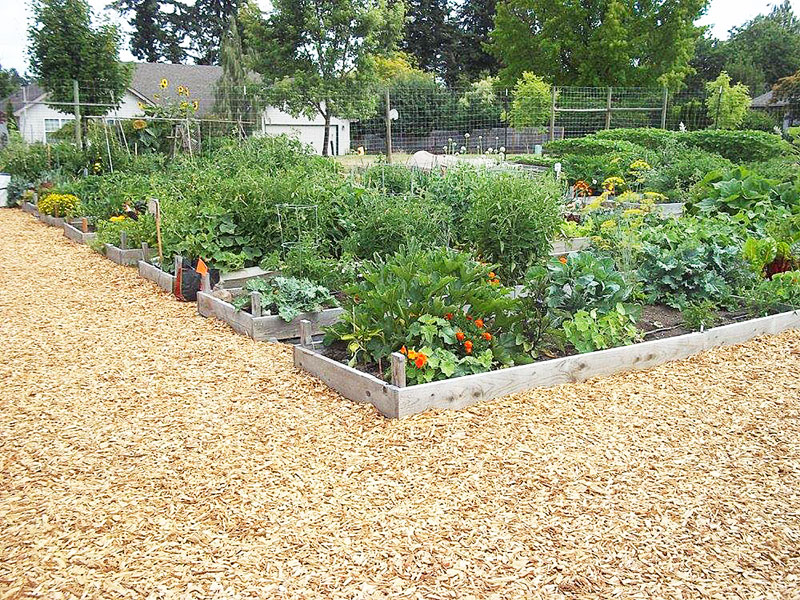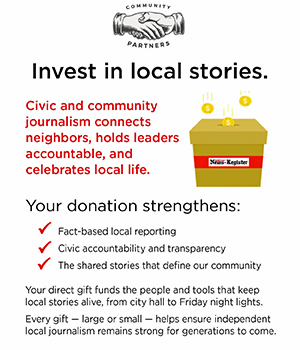Robert Mason: Enhancing food security in Yamhill County
Hunger is stalking Yamhill County. This is occurring in the face of the economic recovery from the great recession of 2008. Unemployment is down and income tax revenues are up enough to trigger the state kicker.
At the same time, homelessness and food insecurity are elevated. Benefits of the recovery are flowing to those at the top and leaving the most vulnerable in a food desert. Too many jobs are part time and pay minimum wage, characteristics of a high poverty economy. In the 1970s, the top 10 percent of the population received 30 percent of the nation’s income and owned 60 percent of the nation’s wealth. Today the top 10 percent receive 50 percent of the nation’s income and own 77 percent of the nation’s wealth.
See Also: Seed to Supper program creating more gardeners
Food insecurity is on the rise in Yamhill County. In 2014 (the most recent date for which data are available), 13.3% of the population was food insecure, which translates into 13,400 food insecure individuals, including 5,740 children. For the state as a whole, nearly one in six (16.1 percent) of Oregon households were food insecure during the three-year period of 2013-15.
The United States Department of Agriculture defines food security as “access by all people at all times to enough food for an active, healthy life.” A family, therefore, is food insecure if one member — say, a parent who forgoes meals so a child will have enough to eat — does not have access to that level of food.
At the turn of the 20th century, researchers at the Community Organization Societies in London and New York discovered people do not work because they are lazy; they are lazy because they do not work. They do not have enough money to secure a diet that fosters a metabolism rate required by most employers. Underweight babies born of malnourished mothers have extremely poor life prospects. In sum, food insecurity is much more than the suffering of individuals. It contributes to social problems such as unemployment, homelessness and intergenerational poverty.
The McMinnville Community Garden (at Parkview) is a local response to food insecurity. The Garden is a cooperative enterprise among volunteers who operate the Garden; the Yamhill County Master Gardener Association, which provides gardening expertise; the Yamhill Community Action Partnership, which provides fiduciary services and liability insurance; the McMinnville Cooperative Ministries, which provides the land on which we garden; and the McMinnville Garden Club, which oversees the Children’s Garden.
Furthermore, we receive widespread support from local businesses and nonprofit organizations. Many organizations have provided us with financial support and/or in-kind goods or services.
All these parts work together in a symbiotic fashion. As an example, Cascade Steel Rolling Mills donated 5,000 feet of rebar; volunteers using a gadget loaned to us by Bailey’s Nursery cut and bent the rebar into sections; another volunteer with welding skills transformed the sections into 100 tomato cages; funds donated to the Garden paid for welding supplies.
The Garden is a genuine community affair. It comprises five areas:
* Raised beds, which are rented for a nominal fee — $13 to $25 for the gardening season — to community gardeners. For the fee, gardeners receive amended soil, water, the use of gardening tools and some starts. They also receive guidance from Master Gardeners on sustainable and organic gardening practices. We have 47 raised beds available for rent. There is a waiting list for beds. Gardeners, who grow more food than they need for their own use, donate the excess to YCAP.
* Raised beds (31, plus another 18 under construction for 2018) that are dedicated to growing produce for the YCAP food bank. In 2016, we donated 14,625 pounds of produce to YCAP, which provided 12,188 meals.
* An all-access area for wheelchair bound folks;
* A children’s garden;
* One raised bed dedicated to a horticultural therapy program conducted by Yamhill County Adult Mental Health (Yamhill County Early Assessment and Support Alliance) for young adults diagnosed with early psychosis, depression or bipolar disorder. Some members of the group have dual diagnoses.
There is a growing body of empirical evidence that gardening has therapeutic benefits for folks suffering from mental illness. Gardening reduces stress and calms the nerves. It decreases cortisol, a hormone that plays a role in stress response. Gardeners see themselves in a more positive light and that helps them better manage their emotional and behavioral problems.
Studies have shown that community gardening programs can provide an important source of social support for people living with mental health issues. Gardening promotes a sense of pride and motivation. In sum, exposure to green space reduces stress and increases a sense of wellness and belonging.
With the help of a Master Gardener, each participant in this program is learning all aspects of gardening, from soil preparation to harvesting. There will also be a segment on container gardening so participants will be able to continue to garden even if they do not have a patch of dirt available to them. Also, there are follow-up cooking classes so that the participants will be able to prepare their produce. The raised bed they use is large enough so each participant has his own growing space, but compact enough to foster helping among the participants as well as socialization and community building, which is important to the therapeutic process.
We know that the problem of food insecurity is the result of a disorganized economy that puts profits ahead of meeting human needs. One little community garden is not going to put the economy right, but it can help to ameliorate the suffering caused by the lack of food. The number of families living from paycheck to paycheck is growing. These families are one debilitating illness or accident away from falling into poverty.
The are many examples, like George (not his real name), a long-haul truck driver recently diagnosed with cancer and knocked out of his cab. He came to the Garden to grow fresh produce, which is part of the diet required by his treatment regimen. Funds he does not need to spend in the grocery store for produce are available for other essential items, like housing, clothing and medical care.













Comments
Lee
Great article Bob and you have done a great job on your research in putting this article in perspective. There is no question in what you have said. Your a good man Bob. Thank you.